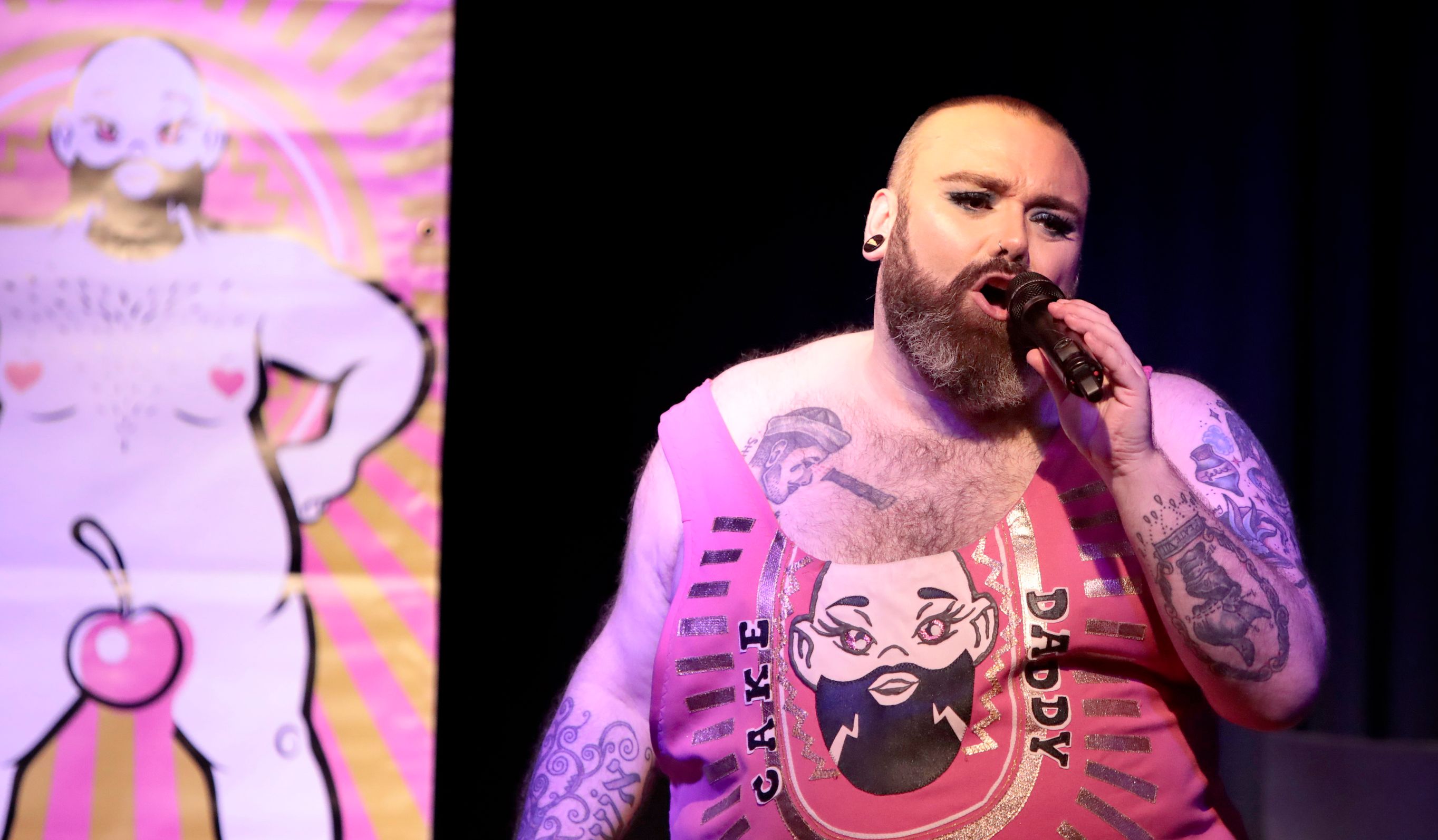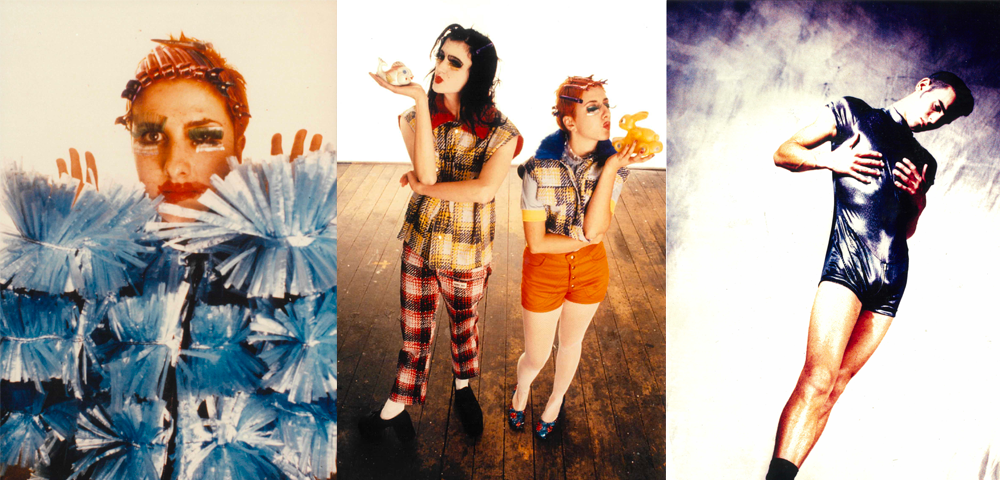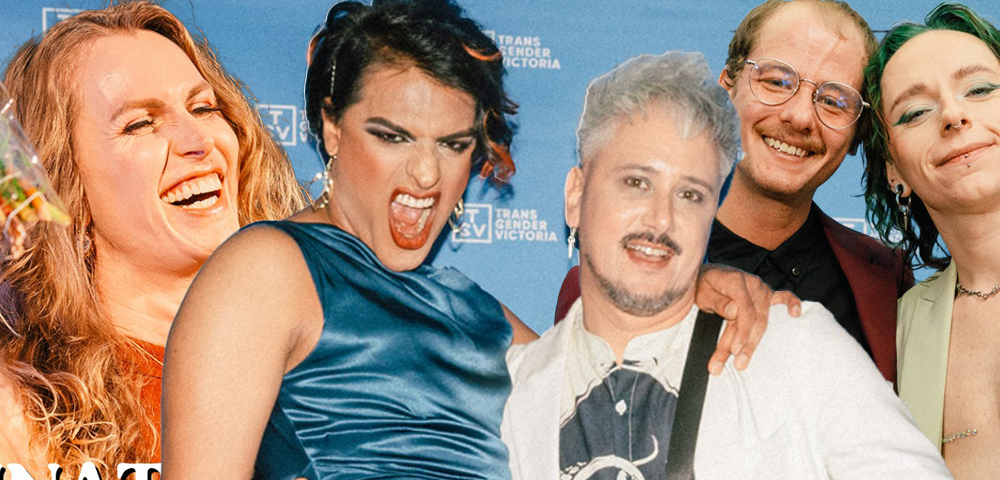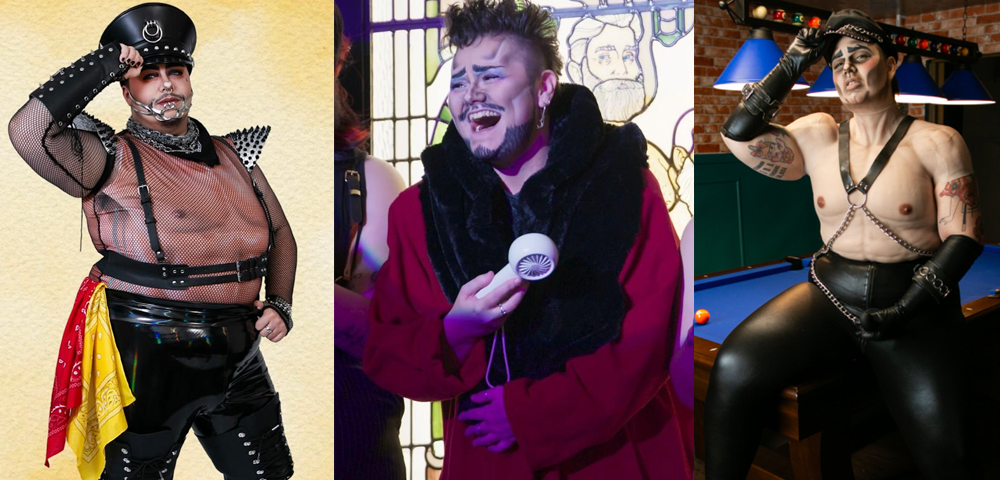
Meet the Irish cabaret artist tackling fatphobia in the queer community

Fatphobia remains prevalent in the queer community, but one advocate is helping to dismantle negative body image standards. Dean Arcuri reports.
***
Big is beautiful right? At least that’s what they say.
But fat people often spend less time celebrating their size because of how they’re made to feel about it.
When you can’t find good clothes in your size, see ‘no fats’ on dating profiles, or are excluded from club photos in venues, it’s hard not to think that you’re the problem, but actually, its them.
“I’m glad you’re celebrating that you’re fat because you’re going to be dead soon from a heart attack” is just one of the ‘compliments’ that Northern Irish artist Ross Anderson-Doherty received after his cabaret show Cake Daddy was introduced to the world.
The show unapologetically celebrates his size and just wrapped to rave reviews at Midsumma Festival, before it makes its way to Sydney Gay and Lesbian Mardi Gras.
Anderson-Doherty says he’s had to get used to the fact that many people can’t handle the reality of their fatphobia, especially when every cuddly curve and crevice is exposed and laid bare before their very eyes.
“Both the arts world and the queer world are both extraordinarily fatphobic,” he says.
“I’ve had a dancer in rehearsal tell me, without irony, that their body is literally better than mine and the queer world is very much the same.
“People react against you when you celebrate your size, because to them it feels so disgusting or unhealthy, and I have people messaging me telling me ‘I deserve to die’ and that they are outraged.”
It seems that size does matter, but instead of saying that beauty is in the eye of the beholder, Anderson-Doherty is using his artform to expose the literal underbelly of body stigma and to celebrate fatness.
“The hatred towards fat people is huge and alarming. When a person starts saying that they aren’t trying to lose weight or that they aren’t on a diet, it highlights and normalises everyone’s thinness as well,” he says.
“It highlights how hard someone else is working to maintain a thin body, when they are actually working against their body’s biology to maintain this socially acceptable shape and size.”
Anderson-Doherty adds that even the most progressive of voices within queer spaces can still perpetuate negative body image standards.
“I have sat in a room with some of the most radical people I know who were in the civil rights movement in Northern Island in the ‘60s and ‘70s, and are still queer activists today, who will tell me what diet they’re on and how much weight they’ve lost and ask me to congratulate them,” he says.
“I’m like, are you fucking serious?
“You are literally standing there telling me that your body is less like mine now, so it’s better, and want me to congratulate you.”
Cake Daddy was born out of a small scene in a show about HIV in Northern Ireland where Anderson-Doherty was naked.
The show itself was quite confronting, but he found that what the audience reacted to the most was seeing a fat man naked on stage.
“There’s something about that moment that made me go, wow, what just happened,” he says.
“There was a mixture of laughter with some people too embarrassed to laugh, while others just looked disgusted.
“I realised that people don’t know how to look at a fat body which isn’t apologising for itself or the punch line in a joke. Even as a performer, being naked left me feeling a bit more vulnerable than usual. Which is why the moment resonated with me so much.”
Anderson-Doherty said it opened his eyes to the issue of fatphobia more than ever before.
“It was almost like an acute, encapsulated, condensed, concentrated moment of fatphobia was thrown at me by the audience, and for me it highlighted where I had experienced it in other areas of my life.”
Even though he’s mostly made of confidence, fat, and fur, Anderson-Doherty admits that revealing his body is a completely different thing to revealing his own story on stage.
“When we premiered the show a couple of people got up and walked off towards the end saying I should just go and lose weight and shut up, but mostly the reaction was overwhelmingly positive and supportive,” he says.
“It was the reaction from the fat people who saw it which was most important for me and [in their words] they loved it.
“They said for the first time they were in a space where they felt welcomed and seen. Where they felt heard and felt validated in the space they took up. As a fat person you can forget you’re allowed to do that.”
Anderson-Doherty isn’t the only advocate helping to dismantle fatphobia in the queer community.
Bear communities around the world have created safer spaces for queer men to feel comfortable no matter their size, something Mr VicBears 2019 Matt Gardener is very grateful for.
“The bear community evolved as a counterculture to the mainstream idea of chasing the ideal body type by simply not being that,” he said.
“Because of that we create more accepting spaces and are already on the right track to accepting our bodies for being what they are.
“I know that I’m walking into a space with people who have actively taken fat out of the equation. It’s really comforting to be in spaces for bears and similar communities who embrace you for who you are.”
Drag artist Leasa Mann started the new year trading lashes and heels for a jockstrap and harness at a dance party to kick 2019 off.
“In drag my shape didn’t bother me, but whenever I took my costumes and hair off it became a sobering experience,” she said.
“I was holding myself differently. Not because I was shameful, but because I wasn’t as proud.
“I pledged to myself to let me be seen as loveable and sexy, even without all the drag and took a step I’ve never taken before, being nearly naked at a party. Surrounded myself with friends who knew my journey I had the most empowering moment of my life.
“I felt completely free, free of judgment, free of shame and free to be me. And many people told me that they’d never seen me so happy. And on that day, the new me was born.”
Anderson-Doherty hopes more people start celebrating their bodies, and dismantling the idea that being fat is something to be ashamed of.
“We are socialised to think that fat equals bad, that any subcutaneous fat is a bad thing which is unhealthy or disgusting. We’re told fatness is an epidemic and there’s a war on obesity in the world,” he says.
“I hope people leave my show starting a conversation about why dieting isn’t good for you or why it’s fine to be fat.”
Cake Daddy runs at Mardi Gras from February 16 – 22. For more information or to buy tickets, visit: www.mardigras.org.au/events/cake-daddy.









